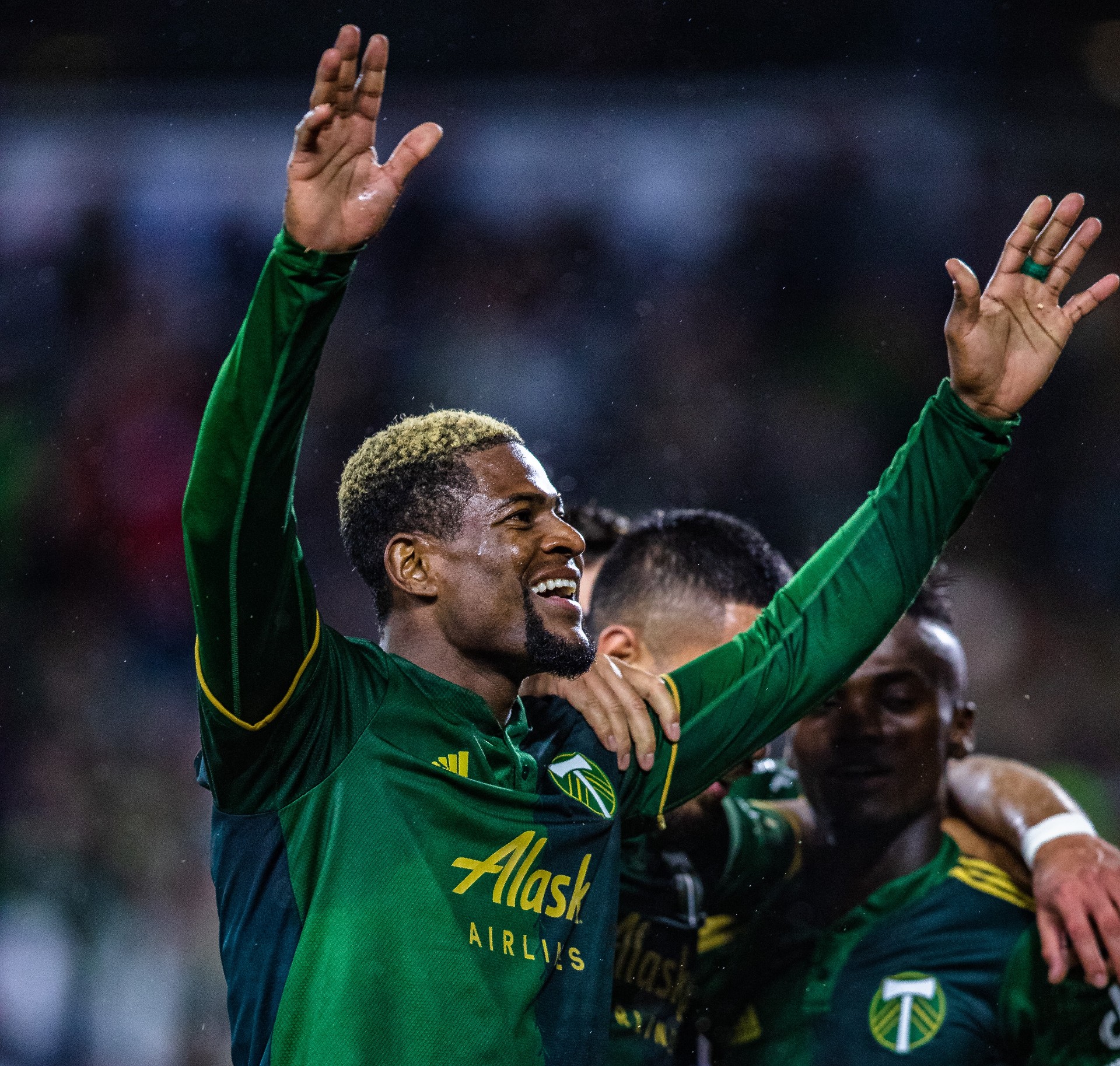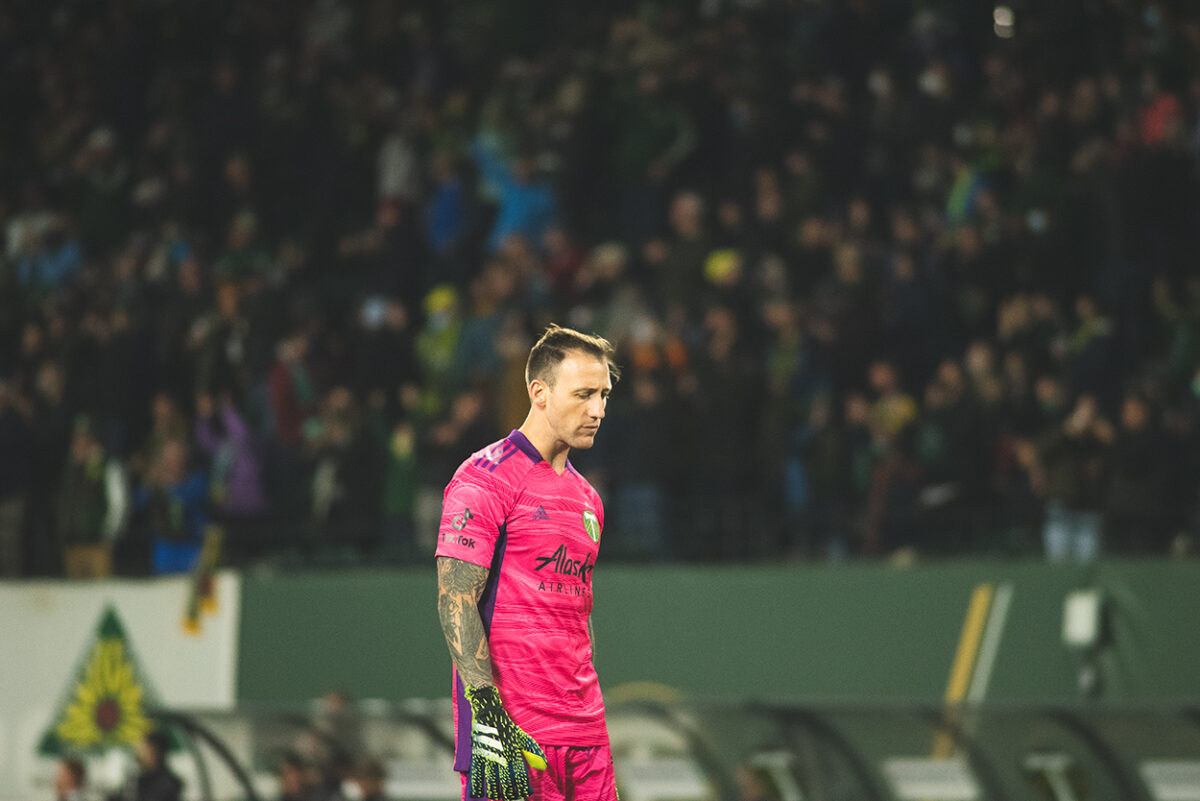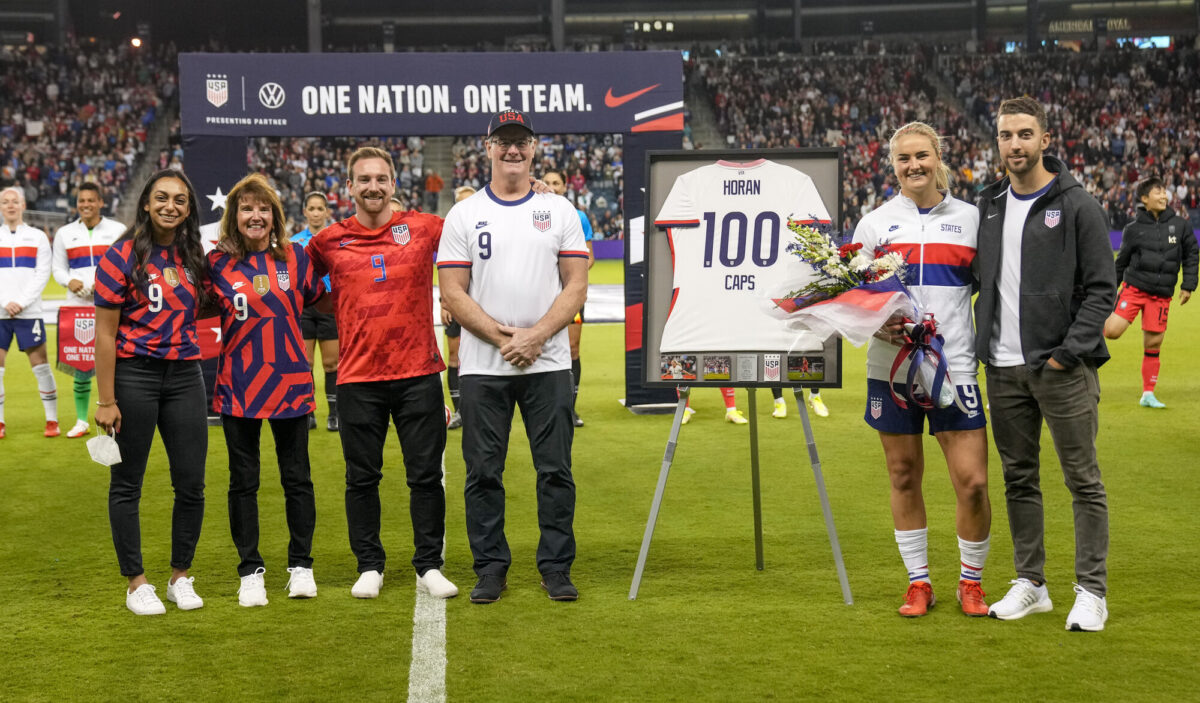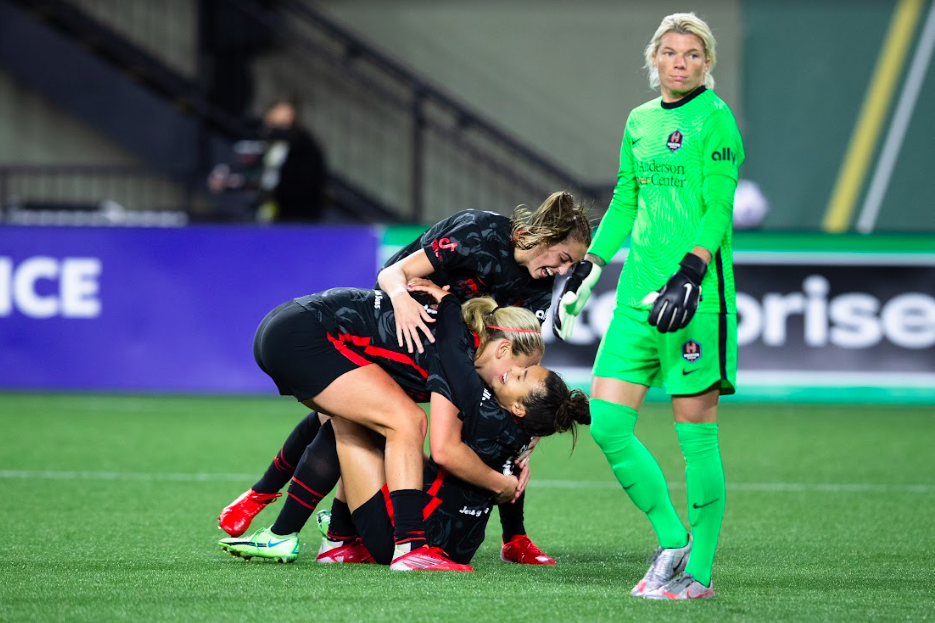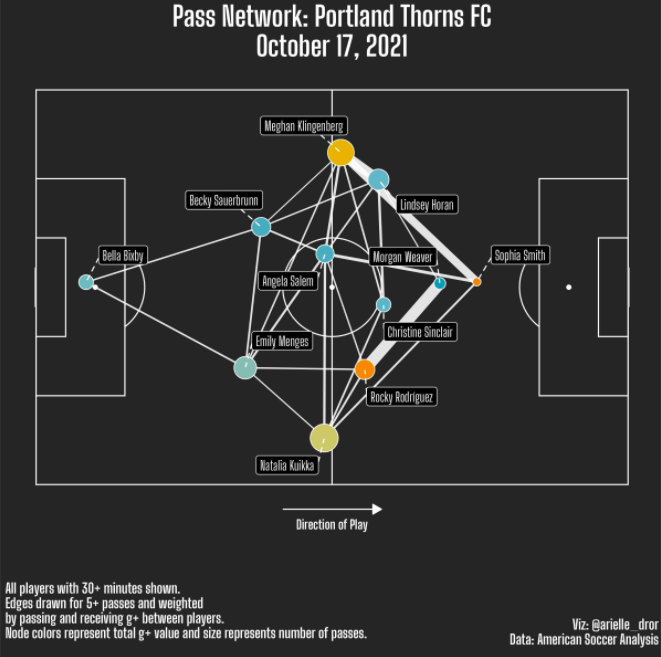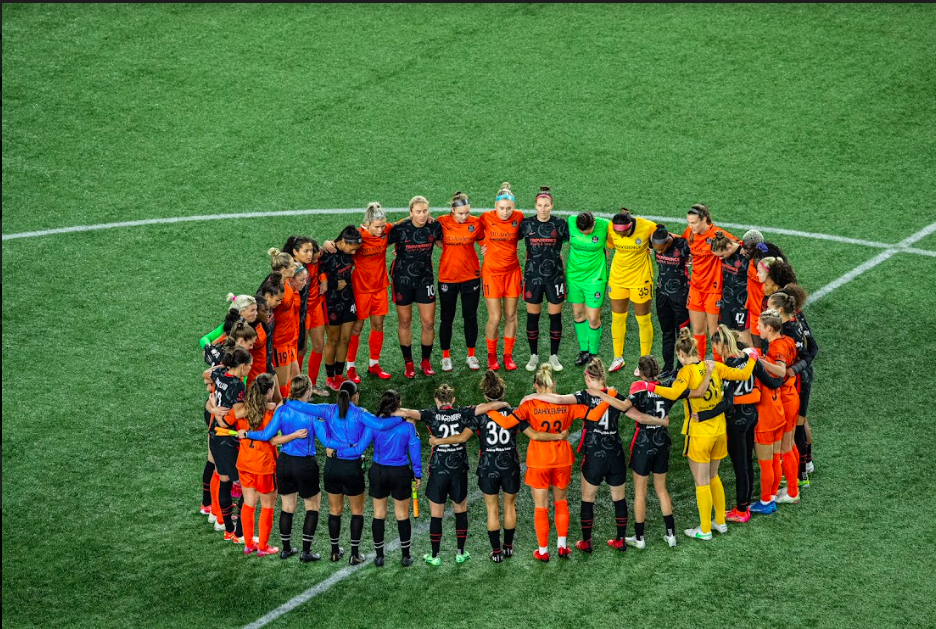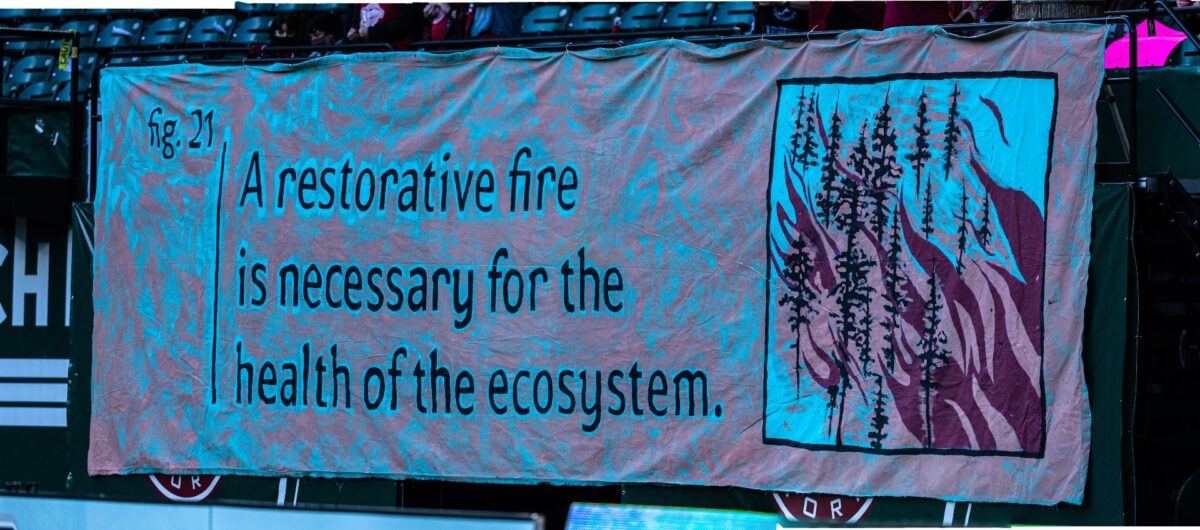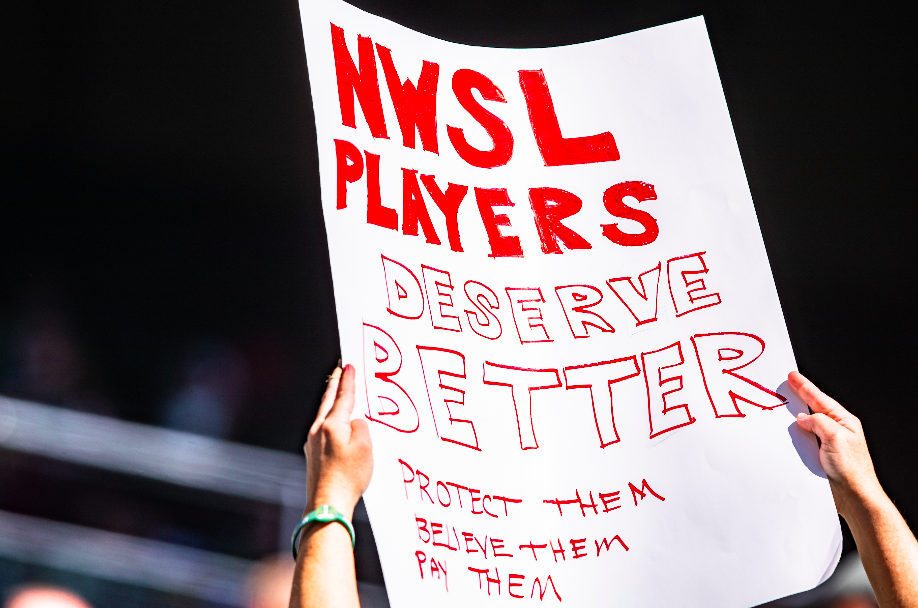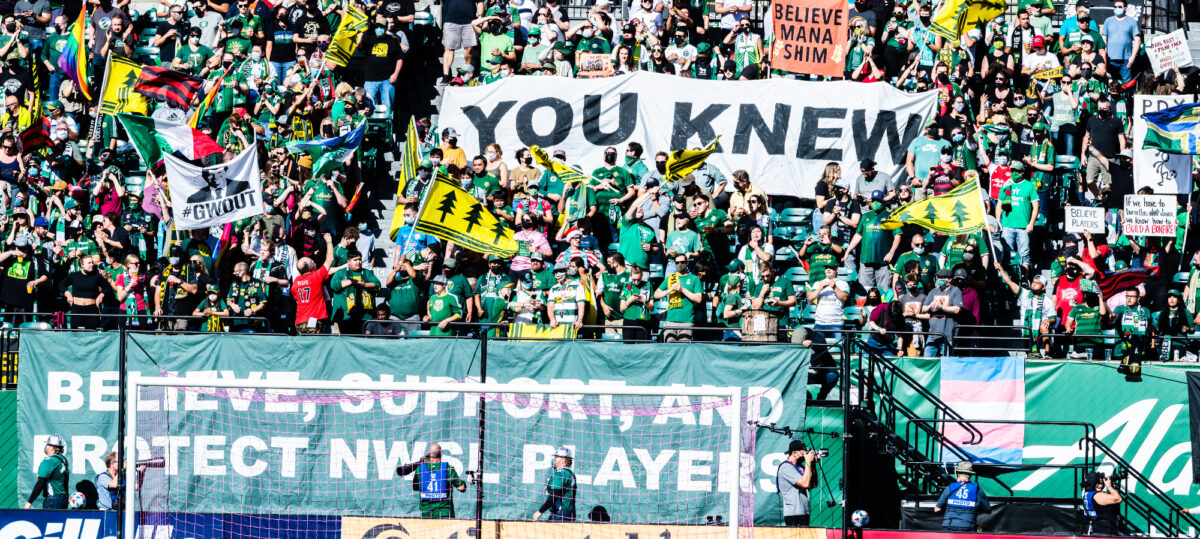What strange times we’ve all lived through.
The end of this Thorns season—only the second-weirdest NWSL season because 2020 happened—came with a shrug last night, somehow sudden despite being the latest-ever closing weekend in the league’s nine-year history. If we had visions of the Thorns thundering down the stretch in Mark Parsons’s last year in Portland, growing in power until they peaked in the playoffs and won the last and biggest trophy left to win, well. They could still peak in the playoffs. They could certainly still win the big trophy. But things haven’t gone quite like that.
The season ender was, above all, weird. I’d been expecting a win; North Carolina have not been good (and weren’t good last night), and the possibility of the first decent home crowd in more than two months seemed to bode well, motivation-wise. Instead, the Thorns did more of their weird thing that they do, their frustrating thing where they look like the dominant side for most of the game, string together some beautiful attacking sequences, look like they generally have the right idea, and never manage to put the ball in the back of the net.
With that said, let’s look at how the Thorns approached NC. This team talks a lot about how they deploy the same formation against every opponent, but they do make smaller-scale tweaks against specific teams. Against the Courage last night, rather than pressing one forward and having the other available to combine or receive a through pass if the first forward won the ball, they used the non-pressing forward to mark NC’s strong-side outside back.
They also pressed the back line less than they generally do, period. Here’s a shot of the Courage defense getting lots of time on the ball, with the Thorns’ attackers gently encouraging them to keep to one side of the field but otherwise not interfering. Sophia Smith is loosely marking NC left back Carson Pickett in the bottom left of the image.
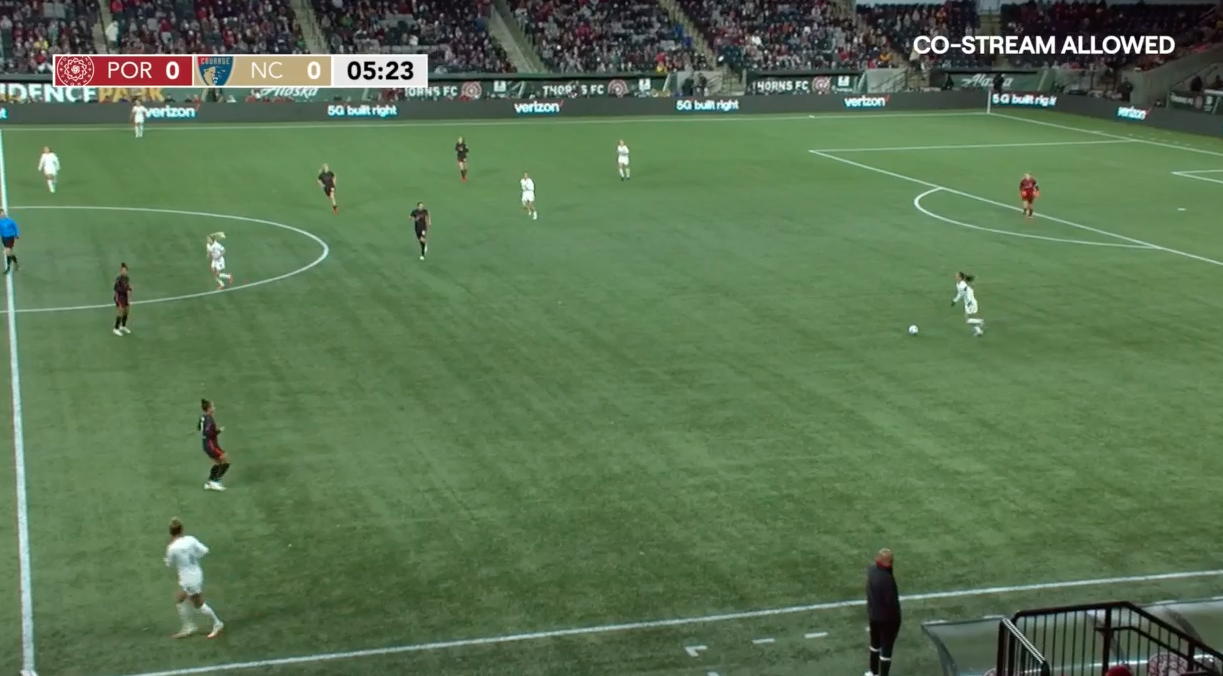
At first, this seems almost backwards. Generally speaking, offenses try to make their shape as big as possible, while a team in its defensive phase tries to shrink the available space. But here, as Mark Parsons explained after the game, the Thorns wanted to let the Courage spread out like this. “When their backline has time on the ball,” he said, “they get bigger, and when you win it, you have a lot of space to exploit, which you saw, I think, multiple times through the first half.”
As you can see in the screenshot above, both Pickett and Merritt Mathias, the NC right back, are pushed well up the field. Abby Erceg is taking her time on the ball, scanning the field for a pass. Eventually, she passed to Denise O’Sullivan in the center of the field, who was immediately forced to go back to Erceg under aggressive pressure from Angela Salem, bringing us to the moment below:
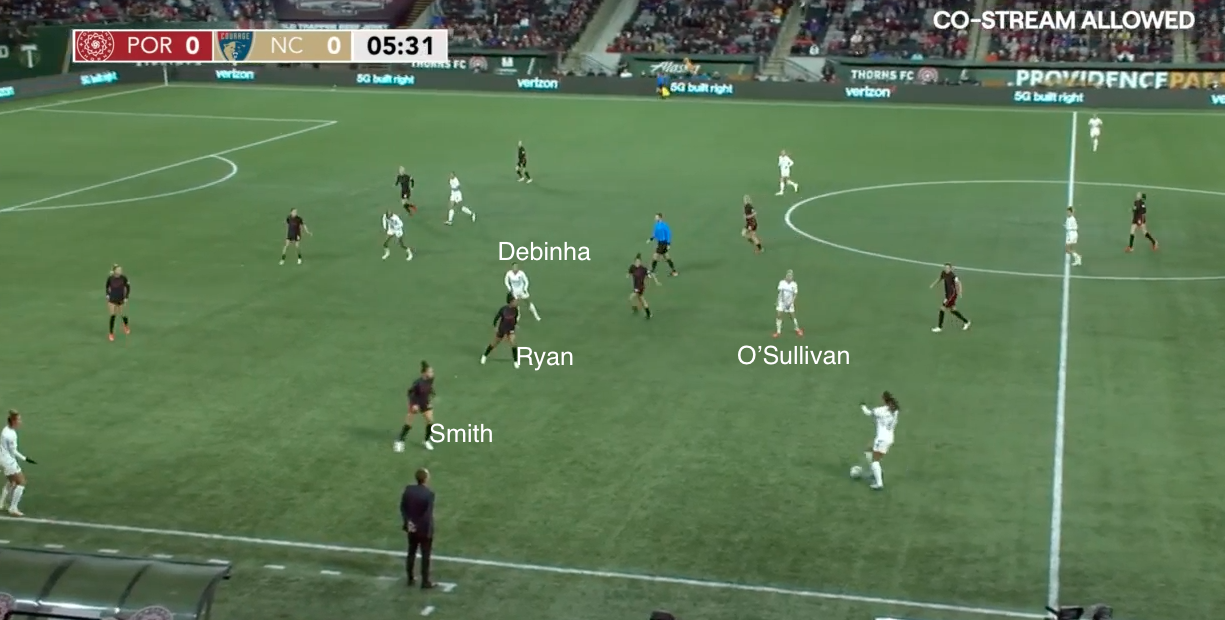
Here the Thorns have succeeded in confining Erceg to a little pocket on the left flank. She can’t pass to Pickett, who Smith is still covering. She could go back to O’Sullivan, but Salem is ready to pounce if she does so. She can either hit one over the top toward Jessica McDonald and Lynn Williams, or she can try to find a pass through the Thorns’ midfield line to Debinha, who’s hovering behind Yazmeen Ryan in this shot.
Ultimately, she chooses the second option, which brings us to the defensive advantage of Portland dropping one forward at a time back to mark an attacking fullback. “You look at McDonald and Williams, their biggest threat is in behind,” Parsons said. Marking one outside back with a forward lets all four defenders stay home, narrowing the channels Williams and McDonald have to get in behind.
There’s a second piece, too: “We wanted to make sure that that space wasn’t there, but they get there through their 10s.” Keeping four defenders home frees up one of them to step to the Courage No. 10s, Debinha and Amy Rodriguez, which is exactly what happened here. As soon as Erceg passed to Debinha, Kelli Hubly was in motion, springing forward to whack the ball into outer space.
Ideally, instead of a whack, they’d make a long pass into all that space created by the Thorns’ permissive pressing strategy, and Morgan Weaver or Christine Sinclair would burst through and have an easy chance on goal. That almost happened a few times, but, as Parsons said, the team ultimately “didn’t quite take advantage of those counter attacks.”
But: having already clinched the Supporters Shield, the Thorns didn’t need to win this game, which was perhaps what dictated the vibe as the game went on. After a handful of good chances in the first half, including some beautiful combinations between Portland’s attacking corps, the second half was a bit of a slog. The Thorns only posted five shots (compared to 14 in the first half), with just one on goal.
The Courage, meanwhile, were fighting to avoid elimination from the playoffs and played increasingly desperate as time marched on. It was a strange sight. Much of the individual brilliance the Courage have always had was still there, with Debinha and A-Rod both making some eye-popping, if useless, solo plays, but the machine broke down a long time ago. These days, we’re all just trying to get by.
As for the Thorns’ fate in the weeks to come: they get a bye in the first round of the playoffs, courtesy of the Shield. In the semifinal, they’ll play the winner of next weekend’s Chicago-Gotham matchup. I think it’s likely they beat either of those teams and make it to the final, but after that, it’s anyone’s game.
I genuinely don’t know what to make of Portland’s form right now. Last night after the whistle, the defense gathered for a group hug, celebrating their 13th regular-season shutout, which is a new league record. The team was all smiles as they climbed the stairs to greet the fans and learn the winner of the Riveters Player of the Year, who—very deservedly—was Angela Salem.
They’re a good soccer team, broadly speaking. The best in the league, you might argue! It seems cruel at this point, after everything they’ve been through, to pick nits about the defense getting a little lucky a few times last night, or to ask whether the team is having a scoring issue. Parsons spoke about the need to keep improving heading into the semifinal, and he’s right. Hopefully Lindsey Horan, Crystal Dunn, and Rocky Rodríguez are all fully healthy by then, too, which will help.
As ever, the emphasis postgame was on togetherness. The last two years have been brutal for everyone in this league, and it’s hard not to assume that the last month in particular derailed the Thorns’ hoped-for late-season progression curve. But pain can lead to growth, too, and if the team is as happy to have made it this far as they seem to be, maybe that’s enough.
“This is a special group,” Kling said postgame. “It’s a real family. We’ve been through a lot this year—hard times—whether it’s health, COVID, the abuse scandals that have happened, and I think we’ve used all of these things to come together and to talk about it and to get stronger.”

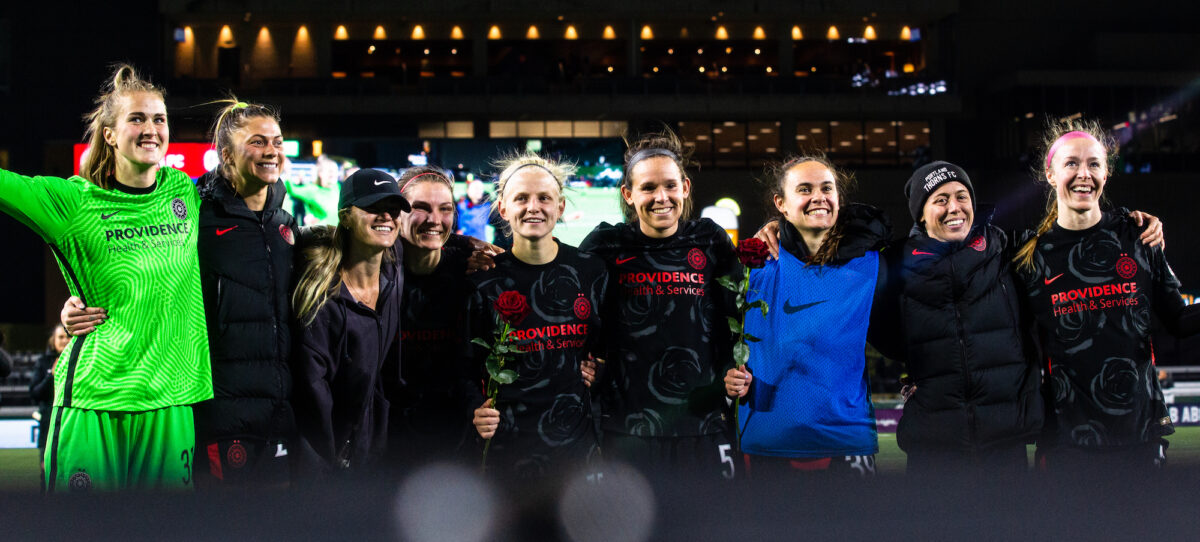
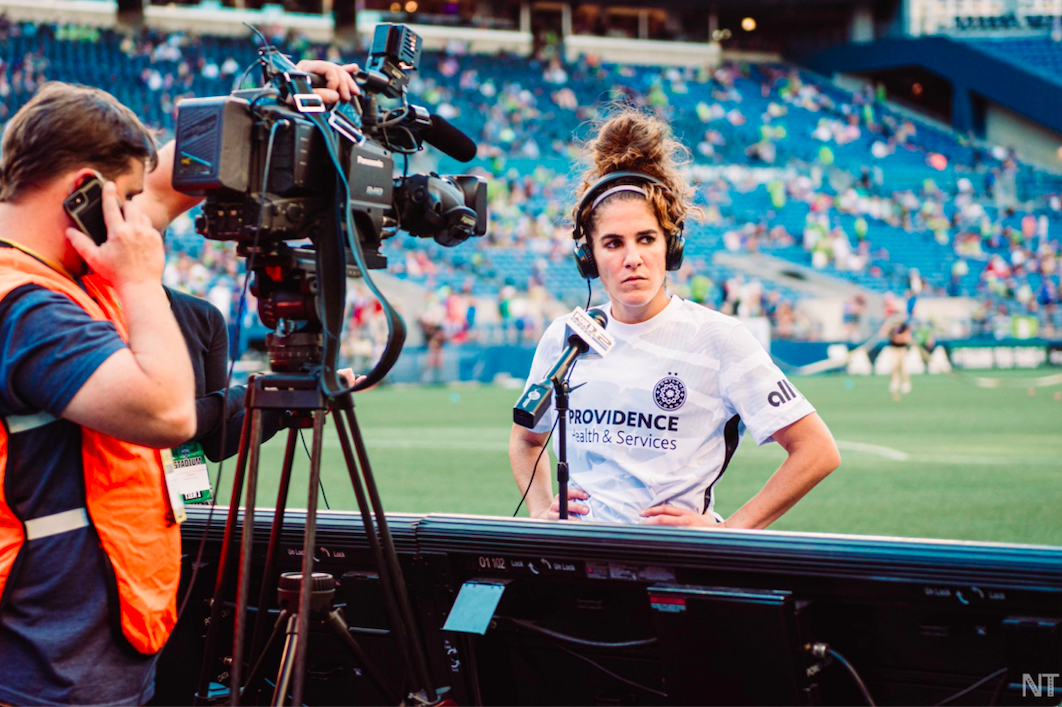
 Unlock with Patreon
Unlock with Patreon